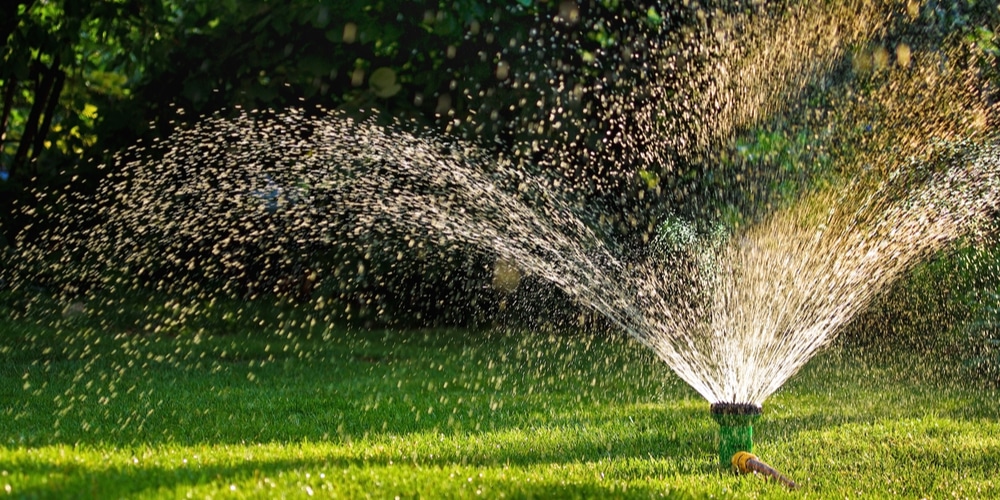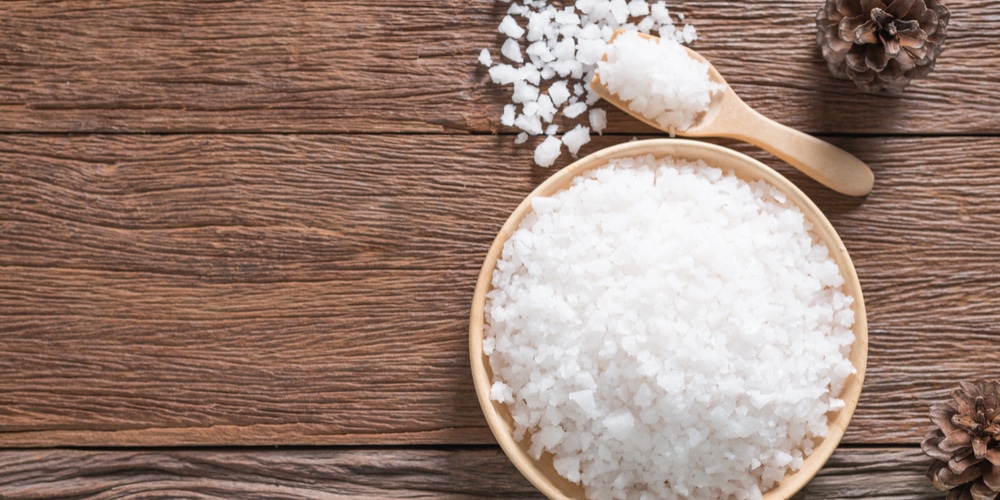There are many myths when it comes to using Epsom salts for gardening. You may have heard that it can be used as a pesticide, can help seeds to germinate can fertilize your lawn. Or perhaps you’ve heard that it will kill grass or make shrubs bushier and help flowers bloom. It can be hard to know what to believe. Most things that you hear about Epsom salts are likely to be urban myths.
Does Epsom salt help make your grass greener? Does Epsom salt kill grass? Let’s find out!
Facts About Epsom Salt
.
Epsom salts were initially collected from a spring in Epsom, England, which is how it got its name. This product has various uses but doesn’t actually contain any salt. While table salt contains sodium chloride, Epsom Salts contain sulfur and magnesium, which some gardeners believe can be helpful to soil health. While Epsom salts are a natural product, using them on your lawn may not be the best idea.
You may have read articles suggesting that Epsom Salts allow you to add magnesium and sulfur to your yard. Some people think this helps vegetables such as tomatoes and peppers grow. Epsom Salts are often used in commercial agriculture, where vegetables are cultivated under intensive conditions. Before applying Epsom salts, the soil will have been tested to show that it’s deficient in magnesium.
Your yard does not need Epsom salt
Most homeowners won’t require to put Epsom salts on their lawn or plants as the soil is unlikely to be deficient in magnesium or sulfur. Adding too much of these nutrients to your lawn could kill the grass as lawns don’t require much magnesium and sulfur to thrive.
Some yards that have very sandy soil or that are in areas where there is heavy rainfall may be magnesium deficient. However, grass needs other nutrients, so adding Epsom salts to your lawn is unlikely to make your grass healthier.
It’s worth noting that each plant in your yard requires specific nutrients, and grass is no exception. Grass needs nitrogen, potassium, and phosphorus to grow healthier, and many commercial fertilizers contain these ingredients. It also needs magnesium, calcium, and sulfur in smaller amounts. It’s best to do a soil test to determine which nutrients your lawn is short of before adding Epsom salts or any fertilizers.
Epsom Salt is a Pollutant
Anything you add to your lawn that the grass doesn’t take up will wash away as a pollutant. Often a lack of magnesium in the soil is caused by excessive potassium due to over-fertilization. However, adding magnesium to the soil in the form of Epsom salts isn’t likely to improve your lawn. Magnesium and sulfur are micronutrients that are only required by most grasses and plants in minimal amounts. Your yard can maintain optimum health without much magnesium and sulfur.
As Epsom Salts are highly soluble, they are often overused. Highly soluble chemicals that aren’t required by plants can affect the environment by changing the ecosystem. They can wash into local waterways and neighboring yards.
Scientific research shows that Epsom Salts aren’t effective for killing insects or getting rid of slugs. Epsom salt can also cause leaf scorch if it’s used in a hot climate. This will kill grass and plants. (Much like vinegar will kill grass).
It’s not a wise idea to use Epsom salts on your lawn as your grass doesn’t need extra magnesium. Sometimes Epsom Salt is used to reinvigorate pasture land on commercial farms. In these cases, the crop is likely to be heavily cultivated, and the soil will have been tested for deficiencies first. Likely, this will only provide a temporary solution, as about half of the Epsom salts will be washed away when it rains.
Conclusion
Few lawns suffer from Magnesium or Sulfur deficiency, so adding Epsom salts to your yard isn’t necessary. If you think that your lawn requires fertilizing, you should first test the soil quality to see if it has any deficiencies. Where deficiencies are present, only add the necessary element in the correct quantities to replenish the soil to its normal range. Pool water can kill grass faster than Epsom Salt.
Does Epsom Salt kill grass? It’s unlikely that Epsom salts will kill your grass, but the product won’t benefit your lawn as they don’t contain the required nutrients for grass growth.

